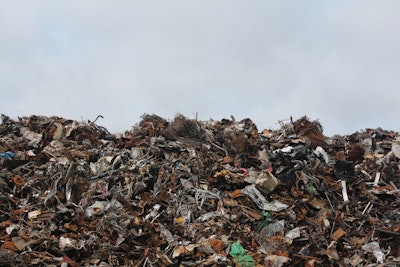
A new industry is emerging as the world grows more concerned about climate change.
According to the United Nations, food wasted in the supply chain and at home is one of the largest contributors to global climate change, generating 4.4 gigatonnes of carbon dioxide each year. The combined costs of social, economic and environmental impact reaches $2.5 trillion annually, generating businesses to create new solutions that address food waste.
Data analytics company, Good for Food, is assisting with educating people by offering a smart tracker technology to hotels and large commercial kitchens to reduce food waste and save costs.
There are currently limited solutions that help prevent food waste, so the technology can educate the kitchen on how to reuse certain items or ingredients in other parts of the menu. For example, ingredients can be "upcycled" by deep-frying them or using as a garnish rather than being thrown out.
The company's "actionable insights" provide customers upwards 50 percent in food waste reduction, CNBC reports.
Meanwhile, food scraps that cannot be upcycled can be used for fertilizers and cooking gas. According to CNBC, Homebiogas uses bacteria to break down foods and converts it into biogas. Technology is a solution for dealing with the world's food waste problem as it can also contribute to tackling energy shortages as well.
“For energy, for electricity, for hot water, for anything that we need, all of it can come from … organic material,” co-founder of HomeBiogas, Yair Teller tells CNBC.

















